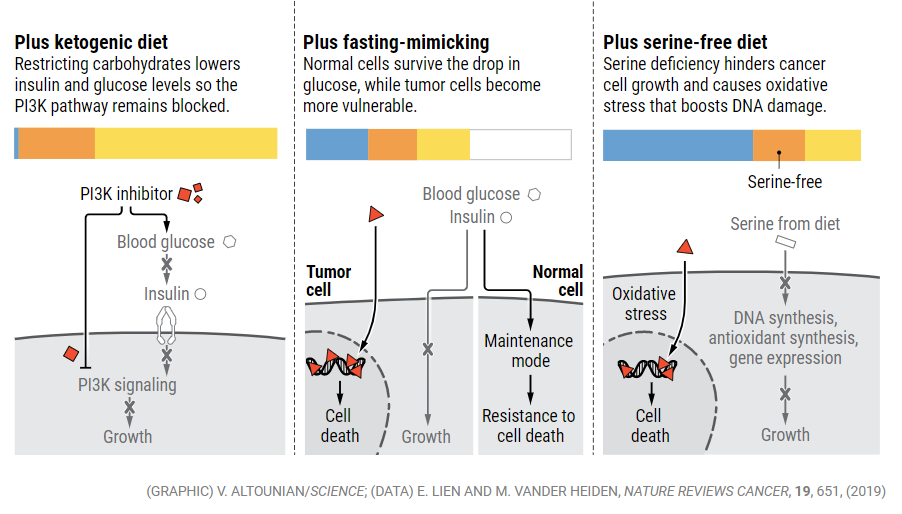Welcome to DU!
The truly grassroots left-of-center political community where regular people, not algorithms, drive the discussions and set the standards.
Join the community:
Create a free account
Support DU (and get rid of ads!):
Become a Star Member
Latest Breaking News
Editorials & Other Articles
General Discussion
The DU Lounge
All Forums
Issue Forums
Culture Forums
Alliance Forums
Region Forums
Support Forums
Help & Search
Celerity
Celerity's Journal
Celerity's Journal
April 8, 2021
https://www.folkhalsomyndigheten.se/smittskydd-beredskap/utbrott/aktuella-utbrott/covid-19/statistik-och-analyser/acceptans-for-vaccination-mot-covid-19/


Over 91% in Sweden plan to get the COVID vaccine, only 5% say no, 4% undecided
Undersökning om acceptans för vaccination mot covid-19 (Study on acceptance for vaccination against covid-19)https://www.folkhalsomyndigheten.se/smittskydd-beredskap/utbrott/aktuella-utbrott/covid-19/statistik-och-analyser/acceptans-for-vaccination-mot-covid-19/


April 8, 2021
https://www.msnbc.com/opinion/filibuster-hurts-only-senate-democrats-mitch-mcconnell-knows-n1255787
snip
Cutting off debate in the Senate so legislation can be voted on is done through a procedure called "cloture," which requires three-fifths of the Senate — or 60 votes — to pass. I went through the Senate's cloture votes for the last dozen years from the 109th Congress until now, tracking how many of them failed because they didn't hit 60 votes. It's not a perfect method of tracking filibusters, but it's as close as we can get. It's clear that Republicans have been much more willing — and able — to tangle up the Senate's proceedings than Democrats. More important, the filibuster was almost no impediment to Republican goals in the Senate during the Trump administration. Until 2007, the number of cloture votes taken every year was relatively low, as the Senate's use of unanimous consent agreements skipped the need to round up supporters. While a lot of the cloture motions did fail, it was still rare to jump that hurdle at all — and even then, a lot of the motions were still agreed to through unanimous consent. That changed when Democrats took control of Congress in 2007 and McConnell first became minority leader. The number of cloture motions filed doubled compared to the previous year, from 68 to 139.
Things only got more dire as the Obama administration kicked off in 2009, with Democrats in control of the House, the Senate and the White House. Of the 91 cloture votes taken during the first two years of President Barack Obama's first term, 28 — or 30 percent — failed. All but three failed despite having majority support. The next Congress was much worse after the GOP took control of the House: McConnell's minority blocked 43 percent of all cloture votes taken from passing. Things were looking to be on the same course at the start of Obama's second term. By November 2013, 27 percent of cloture votes had failed even though they had majority support. After months of simmering outrage over blocked nominees grew, Senate Democrats triggered the so-called nuclear option, dropping the number of votes needed for cloture to a majority for most presidential nominees, including Cabinet positions and judgeships. The next year, Republicans took over the Senate with Obama still in office. By pure numbers, the use of the filibuster rules skyrocketed under the Democratic minority: 63 of 123 cloture votes failed, or 51 percent. But there's a catch: Nothing that was being voted on was covered by the new filibuster rules. McConnell had almost entirely stopped bringing Obama's judicial nominees to the floor, including Supreme Court nominee Merrick Garland.
McConnell defended the filibuster on the Senate floor last week, reminding his counterparts of their dependence on it during President Donald Trump's term. "Democrats used it constantly, as they had every right to," he said. "They were happy to insist on a 60-vote threshold for practically every measure or bill I took up." Except, if anything, use of the filibuster plummeted those four years. There are two main reasons: First, and foremost, the amount of in-party squabbling during the Trump years prevented any sort of coordinated legislative push from materializing. Second, there wasn't actually all that much the Republicans wanted that needed to get past the filibuster in its reduced state after the 2013 rule change. McConnell's strategy of withholding federal judgeships from Obama nominees paid off in spades, letting him spend four years stuffing the courts with conservatives. And when Trump's first Supreme Court nominee, Neil Gorsuch, was filibustered, McConnell didn't hesitate to change the rules again. Trump's more controversial nominees also sailed to confirmation without any Democratic votes. Legislatively, there were only two things Republicans really wanted: tax cuts and repeal of Obamacare. The Trump tax cuts they managed through budget reconciliation, a process that allows budget bills to pass through the Senate with just a majority vote.
Republicans tried to do the same for health care in 2017 to avoid the filibuster, failing only during the final vote, when Sen. John McCain's "no" vote denied them a majority. The repeal wouldn't have gone through even if the filibuster had already been in the grave. As a result, the number of successful filibusters plummeted: Over the last four years, an average of 7 percent of all cloture motions failed. In the last Congress, 298 cloture votes were taken, a record. Only 26 failed. Almost all of the votes that passed were on nominees to the federal bench or the executive branch. In fact, if you stripped out the nominations considered in the first two years of Trump's term, the rate of failure would be closer to 15 percent — but on only 70 total votes. There just wasn't all that much for Democrats to get in the way of with the filibuster, which is why we didn't hear much complaining from Republicans. Today's Democrats aren't in the same boat. Almost all of the big-ticket items President Joe Biden wants to move forward require both houses of Congress to agree. And given McConnell's previous success in smothering Obama's agenda for political gain, his warnings about the lack of "concern and comity" that Democrats are trying to usher in ring hollow. In actuality, his warnings of "wait until you're in the minority again" shouldn't inspire concern from Democrats. So long as it applies only to legislation, the filibuster is a Republicans-only weapon. There's nothing left, it seems, for the GOP to fear from it — aside from its eventual demise.
snip
The filibuster hurts only Senate Democrats -- and Mitch McConnell knows that. The numbers don't lie.
My own add - Sinema wants a 60 vote threshold on EVERY legislative action!. Not joking. 
https://www.msnbc.com/opinion/filibuster-hurts-only-senate-democrats-mitch-mcconnell-knows-n1255787
snip
Cutting off debate in the Senate so legislation can be voted on is done through a procedure called "cloture," which requires three-fifths of the Senate — or 60 votes — to pass. I went through the Senate's cloture votes for the last dozen years from the 109th Congress until now, tracking how many of them failed because they didn't hit 60 votes. It's not a perfect method of tracking filibusters, but it's as close as we can get. It's clear that Republicans have been much more willing — and able — to tangle up the Senate's proceedings than Democrats. More important, the filibuster was almost no impediment to Republican goals in the Senate during the Trump administration. Until 2007, the number of cloture votes taken every year was relatively low, as the Senate's use of unanimous consent agreements skipped the need to round up supporters. While a lot of the cloture motions did fail, it was still rare to jump that hurdle at all — and even then, a lot of the motions were still agreed to through unanimous consent. That changed when Democrats took control of Congress in 2007 and McConnell first became minority leader. The number of cloture motions filed doubled compared to the previous year, from 68 to 139.
Things only got more dire as the Obama administration kicked off in 2009, with Democrats in control of the House, the Senate and the White House. Of the 91 cloture votes taken during the first two years of President Barack Obama's first term, 28 — or 30 percent — failed. All but three failed despite having majority support. The next Congress was much worse after the GOP took control of the House: McConnell's minority blocked 43 percent of all cloture votes taken from passing. Things were looking to be on the same course at the start of Obama's second term. By November 2013, 27 percent of cloture votes had failed even though they had majority support. After months of simmering outrage over blocked nominees grew, Senate Democrats triggered the so-called nuclear option, dropping the number of votes needed for cloture to a majority for most presidential nominees, including Cabinet positions and judgeships. The next year, Republicans took over the Senate with Obama still in office. By pure numbers, the use of the filibuster rules skyrocketed under the Democratic minority: 63 of 123 cloture votes failed, or 51 percent. But there's a catch: Nothing that was being voted on was covered by the new filibuster rules. McConnell had almost entirely stopped bringing Obama's judicial nominees to the floor, including Supreme Court nominee Merrick Garland.
McConnell defended the filibuster on the Senate floor last week, reminding his counterparts of their dependence on it during President Donald Trump's term. "Democrats used it constantly, as they had every right to," he said. "They were happy to insist on a 60-vote threshold for practically every measure or bill I took up." Except, if anything, use of the filibuster plummeted those four years. There are two main reasons: First, and foremost, the amount of in-party squabbling during the Trump years prevented any sort of coordinated legislative push from materializing. Second, there wasn't actually all that much the Republicans wanted that needed to get past the filibuster in its reduced state after the 2013 rule change. McConnell's strategy of withholding federal judgeships from Obama nominees paid off in spades, letting him spend four years stuffing the courts with conservatives. And when Trump's first Supreme Court nominee, Neil Gorsuch, was filibustered, McConnell didn't hesitate to change the rules again. Trump's more controversial nominees also sailed to confirmation without any Democratic votes. Legislatively, there were only two things Republicans really wanted: tax cuts and repeal of Obamacare. The Trump tax cuts they managed through budget reconciliation, a process that allows budget bills to pass through the Senate with just a majority vote.
Republicans tried to do the same for health care in 2017 to avoid the filibuster, failing only during the final vote, when Sen. John McCain's "no" vote denied them a majority. The repeal wouldn't have gone through even if the filibuster had already been in the grave. As a result, the number of successful filibusters plummeted: Over the last four years, an average of 7 percent of all cloture motions failed. In the last Congress, 298 cloture votes were taken, a record. Only 26 failed. Almost all of the votes that passed were on nominees to the federal bench or the executive branch. In fact, if you stripped out the nominations considered in the first two years of Trump's term, the rate of failure would be closer to 15 percent — but on only 70 total votes. There just wasn't all that much for Democrats to get in the way of with the filibuster, which is why we didn't hear much complaining from Republicans. Today's Democrats aren't in the same boat. Almost all of the big-ticket items President Joe Biden wants to move forward require both houses of Congress to agree. And given McConnell's previous success in smothering Obama's agenda for political gain, his warnings about the lack of "concern and comity" that Democrats are trying to usher in ring hollow. In actuality, his warnings of "wait until you're in the minority again" shouldn't inspire concern from Democrats. So long as it applies only to legislation, the filibuster is a Republicans-only weapon. There's nothing left, it seems, for the GOP to fear from it — aside from its eventual demise.
snip
April 7, 2021
Label:
Wiggle – WIG001
Format:
Vinyl, 12", EP
Country:
UK
Released:
1996
Genre:
Electronic
Style:
House, Tech House

Housey Doingz - Gobstopper [1996]
Label:
Wiggle – WIG001
Format:
Vinyl, 12", EP
Country:
UK
Released:
1996
Genre:
Electronic
Style:
House, Tech House

April 7, 2021
https://www.theatlantic.com/ideas/archive/2021/04/the-autopilot-economy/618497/

The stock market has had quite a year. Plenty of cash is sloshing around, the pandemic recession notwithstanding, thanks to loose monetary policy, rampant inequality, crypto-speculation, and helicopter drops of cash. Plenty of bored people are reading market rumours on the internet, pumping and dumping penny stocks, riding GameStop to the moon, and bidding up the price of esoteric currencies and digital artworks. The markets are swooning and hitting new highs as kitchen-table investing—laptop-on-the-couch investing, really—is having a heyday not seen since the late 1990s. Yet economists, policy makers, and investors are worried that American markets have become inert—the product of a decades-long trend, not a months-long one. For millions of Americans, getting into the market no longer means picking stocks or hiring a portfolio manager to pick them for you. It means pushing money into an index fund, as offered by financial giants such as Vanguard, BlackRock, and State Street, otherwise known as the Big Three.
With index funds, nobody’s behind the scenes, dumping bad investments and selecting good ones. Nobody’s making a bet on shorting Tesla or going long on Apple. Nobody’s hedging Europe and ploughing money into Vietnam. Nobody is doing much of anything at all. These funds are “passively managed,” in investor-speak. They generally buy and sell stocks when those stocks enter or exit indices, such as the S&P 500, and size their holdings according to metrics such as market value. Index funds mirror the market, in other words, rather than trying to pick winners and losers within it. Thanks to their ultralow fees and stellar long-term performance, these investment vehicles have soaked up more and more money since being developed by Vanguard’s Jack Bogle in the 1970s. At first, Wall Street was sceptical that investors would accept making what the market made rather than betting on a market-beating return. But as of 2016, investors worldwide were pulling more than $300 billion a year out of actively managed funds and pushing more than $500 billion a year into index funds. Some $11 trillion is now invested in index funds, up from $2 trillion a decade ago. And as of 2019, more money is invested in passive funds than in active funds in the United States.
Indexing has gone big, very big. For nine in 10 companies on the S&P 500, their largest single shareholder is one of the Big Three. For many, the big indexers control 20 percent or more of their shares. Index funds now control 20 to 30 percent of the American equities market, if not more. Indexing has also gone small, very small. Although many financial institutions offer index funds to their clients, the Big Three control 80 or 90 percent of the market. The Harvard Law professor John Coates has argued that in the near future, just 12 management professionals—meaning a dozen people, not a dozen management committees or firms, mind you—will likely have “practical power over the majority of U.S. public companies.” This financial revolution has been unquestionably good for the people lucky enough to have money to invest: They’ve gotten better returns for lower fees, as index funds shunt billions of dollars away from financial middlemen and toward regular families. Yet it has also moved the country toward a peculiar kind of financial oligarchy, one that might not be good for the economy as a whole.
The problem in American finance right now is not that the public markets are overrun with failsons picking up stock tips on Reddit, investors gambling on art tokens, and rich people flooding cash into Special Purpose Acquisition Companies, or SPACs. The problem is that the public markets have been cornered by a group of investment managers small enough to fit at a lunch counter, dedicated to quiescence and inertia. Before index funds, if you wanted to get into the stock market, you had a few choices. You could pick stocks yourself, using a broker to buy and sell them. (Nowadays, you can easily buy and sell on your own.) Or you could buy into a mutual fund—a collection of investments selected by a vetted manager, promising solid returns in exchange for an annual fee. Then Bogle, the head of a mutual-fund company, turned on the industry. He argued that mutual-fund fees were exorbitant, that mutual funds generally failed to beat the market, and that fund employees had an obvious conflict of interest: Was their priority to maximize returns for the people who bought into the mutual fund, or to make money for the company? He set up a company called Vanguard offering a new kind of mutual fund, one that would buy and hold every stock or bond on a major index and that would devote itself to driving fees as low as possible. Other companies, including Fidelity, State Street, and BlackRock, soon mimicked this strategy, later adding exchange-traded options, or ETFs.
snip
Could Index Funds Be 'Worse Than Marxism'?
Economists and policy makers are worried that the Vanguard model of passive investment is hurting markets.https://www.theatlantic.com/ideas/archive/2021/04/the-autopilot-economy/618497/

The stock market has had quite a year. Plenty of cash is sloshing around, the pandemic recession notwithstanding, thanks to loose monetary policy, rampant inequality, crypto-speculation, and helicopter drops of cash. Plenty of bored people are reading market rumours on the internet, pumping and dumping penny stocks, riding GameStop to the moon, and bidding up the price of esoteric currencies and digital artworks. The markets are swooning and hitting new highs as kitchen-table investing—laptop-on-the-couch investing, really—is having a heyday not seen since the late 1990s. Yet economists, policy makers, and investors are worried that American markets have become inert—the product of a decades-long trend, not a months-long one. For millions of Americans, getting into the market no longer means picking stocks or hiring a portfolio manager to pick them for you. It means pushing money into an index fund, as offered by financial giants such as Vanguard, BlackRock, and State Street, otherwise known as the Big Three.
With index funds, nobody’s behind the scenes, dumping bad investments and selecting good ones. Nobody’s making a bet on shorting Tesla or going long on Apple. Nobody’s hedging Europe and ploughing money into Vietnam. Nobody is doing much of anything at all. These funds are “passively managed,” in investor-speak. They generally buy and sell stocks when those stocks enter or exit indices, such as the S&P 500, and size their holdings according to metrics such as market value. Index funds mirror the market, in other words, rather than trying to pick winners and losers within it. Thanks to their ultralow fees and stellar long-term performance, these investment vehicles have soaked up more and more money since being developed by Vanguard’s Jack Bogle in the 1970s. At first, Wall Street was sceptical that investors would accept making what the market made rather than betting on a market-beating return. But as of 2016, investors worldwide were pulling more than $300 billion a year out of actively managed funds and pushing more than $500 billion a year into index funds. Some $11 trillion is now invested in index funds, up from $2 trillion a decade ago. And as of 2019, more money is invested in passive funds than in active funds in the United States.
Indexing has gone big, very big. For nine in 10 companies on the S&P 500, their largest single shareholder is one of the Big Three. For many, the big indexers control 20 percent or more of their shares. Index funds now control 20 to 30 percent of the American equities market, if not more. Indexing has also gone small, very small. Although many financial institutions offer index funds to their clients, the Big Three control 80 or 90 percent of the market. The Harvard Law professor John Coates has argued that in the near future, just 12 management professionals—meaning a dozen people, not a dozen management committees or firms, mind you—will likely have “practical power over the majority of U.S. public companies.” This financial revolution has been unquestionably good for the people lucky enough to have money to invest: They’ve gotten better returns for lower fees, as index funds shunt billions of dollars away from financial middlemen and toward regular families. Yet it has also moved the country toward a peculiar kind of financial oligarchy, one that might not be good for the economy as a whole.
The problem in American finance right now is not that the public markets are overrun with failsons picking up stock tips on Reddit, investors gambling on art tokens, and rich people flooding cash into Special Purpose Acquisition Companies, or SPACs. The problem is that the public markets have been cornered by a group of investment managers small enough to fit at a lunch counter, dedicated to quiescence and inertia. Before index funds, if you wanted to get into the stock market, you had a few choices. You could pick stocks yourself, using a broker to buy and sell them. (Nowadays, you can easily buy and sell on your own.) Or you could buy into a mutual fund—a collection of investments selected by a vetted manager, promising solid returns in exchange for an annual fee. Then Bogle, the head of a mutual-fund company, turned on the industry. He argued that mutual-fund fees were exorbitant, that mutual funds generally failed to beat the market, and that fund employees had an obvious conflict of interest: Was their priority to maximize returns for the people who bought into the mutual fund, or to make money for the company? He set up a company called Vanguard offering a new kind of mutual fund, one that would buy and hold every stock or bond on a major index and that would devote itself to driving fees as low as possible. Other companies, including Fidelity, State Street, and BlackRock, soon mimicked this strategy, later adding exchange-traded options, or ETFs.
snip
April 6, 2021
bars so strong in this one
straight fiya for '21
Russ Millions x Tion Wayne - Body [Music Video] GRM Daily
bars so strong in this one
straight fiya for '21
April 6, 2021
https://www.mirror.co.uk/news/politics/breaking-moderna-covid-vaccine-set-23859645
Brits are set to start receiving the Moderna coronavirus vaccine in just two weeks' time, a Tory minister has said. Nadhim Zahawi said the jab - the third type of vaccine to be used in Britain after Pfizer and AstraZeneca - will be "deployed" from around the third week of April.
The Vaccines Minister gave the news three months after Moderna was approved for use by the MHRA regulator. The issue had been getting the first doses into the UK.
Britain has ordered 17million doses from the US firm. Previously Downing Street had only promised the first shipments would arrive by "Spring" and had been cagey on the timetable.
Last month another minister, Oliver Dowden, said the vaccine would arrive "later" in April. Mr Zahawi, however, said the timetable was "very much" on track for the vaccine to arrive in mid-April and gave more detail today.
sip
Moderna Covid vaccine set to start being given to Brits in just two weeks' time
The Moderna jab - the third to be approved in the UK after Pfizer and AstraZeneca - will be 'in deployment' around the third week of April, said Vaccines Minister Nadhim Zahawihttps://www.mirror.co.uk/news/politics/breaking-moderna-covid-vaccine-set-23859645
Brits are set to start receiving the Moderna coronavirus vaccine in just two weeks' time, a Tory minister has said. Nadhim Zahawi said the jab - the third type of vaccine to be used in Britain after Pfizer and AstraZeneca - will be "deployed" from around the third week of April.
The Vaccines Minister gave the news three months after Moderna was approved for use by the MHRA regulator. The issue had been getting the first doses into the UK.
Britain has ordered 17million doses from the US firm. Previously Downing Street had only promised the first shipments would arrive by "Spring" and had been cagey on the timetable.
Last month another minister, Oliver Dowden, said the vaccine would arrive "later" in April. Mr Zahawi, however, said the timetable was "very much" on track for the vaccine to arrive in mid-April and gave more detail today.
sip
April 6, 2021
MOSCOW (Reuters) - Russian President Vladimir Putin has signed a law that could keep him in office in the Kremlin until 2036, the government said on Monday. The legislation allows him to run for two more six-year terms once his current stint ends in 2024. It follows changes to the constitution last year.
Those changes were backed in a public vote last summer and could allow Putin, 68, to potentially remain in power until the age of 83. He is currently serving his second consecutive term as president and his fourth in total.
The reform, which critics cast as a constitutional coup, was packaged with an array of other amendments that were expected to garner popular support, such as one bolstering pension protections.
The law signed by Putin limits any future president to two terms in office, but resets his term count. It prevents anyone who has held foreign citizenship from running for the Kremlin. The legislation was passed in the lower and upper houses of parliament last month.
Putin signs law that could keep him in Kremlin until 2036
https://www.reuters.com/article/us-russia-politics-putin-idUSKBN2BS18WMOSCOW (Reuters) - Russian President Vladimir Putin has signed a law that could keep him in office in the Kremlin until 2036, the government said on Monday. The legislation allows him to run for two more six-year terms once his current stint ends in 2024. It follows changes to the constitution last year.
Those changes were backed in a public vote last summer and could allow Putin, 68, to potentially remain in power until the age of 83. He is currently serving his second consecutive term as president and his fourth in total.
The reform, which critics cast as a constitutional coup, was packaged with an array of other amendments that were expected to garner popular support, such as one bolstering pension protections.
The law signed by Putin limits any future president to two terms in office, but resets his term count. It prevents anyone who has held foreign citizenship from running for the Kremlin. The legislation was passed in the lower and upper houses of parliament last month.
April 5, 2021

Speeches by beauty pageant contestants rarely make headlines. But when Han Lay, Miss Grand Myanmar, spoke out last week against alleged atrocities committed by her country's military, her speech turned heads. "Today in my country Myanmar ... there are so many people dying," she said at the Miss Grand International 2020 event in Thailand. "Please help Myanmar. We need your urgent international help right now." A little over a month ago, Han Lay, who is 22, was on the streets of Yangon, Myanmar's largest city, protesting against the military.

The unrest in Myanmar began two months ago when the military seized control of the country, undoing a democratic election in which Aung San Suu Kyi's National League for Democracy (NLD) party won by a landslide. When tens of thousands of people took to the streets nationwide to protest the coup, the military used water cannon to disperse them. After a week, the response escalated to rubber bullets and then live ammunition. The deadliest day of the conflict came last Saturday, when more than 100 people were killed. A local monitoring group puts the overall death toll at more than 500. According to Save the Children, 43 of those killed were children.
Han Lay, a psychology student at the University of Yangon, decided to use the pageant as a platform to speak out about her homeland on an international stage. "In Myanmar, journalists are detained ... so I decided to speak out," she told the BBC in a phone interview from Bangkok. She is concerned now that her two-minute speech could have put her on the radar of the military. She said she had decided to stay put in Thailand for at least the next three months.

Han Lay said she knew before she left for Thailand that she would be potentially putting herself at risk and would need to stay there for a while. "I am so worried about my family and my security because I spoke out a lot about the military and the situation in Myanmar. In Myanmar everyone knows there are limits on speaking out about what is happening," she said. "My friends told me to not come back to Myanmar." Her fears are not unfounded. Security forces issued arrest warrants last week for 18 celebrities, social media "influencers" and two journalists under a law against material "intended to cause a member of the armed forces to mutiny or disregard their duty", state media reported. All of them had spoken out against the coup.

snip
Miss Grand Myanmar 2020 (Han Lay) | Speech For Her Country
BBC - The Myanmar beauty queen standing up to the military
https://www.bbc.com/news/world-asia-56602683
Speeches by beauty pageant contestants rarely make headlines. But when Han Lay, Miss Grand Myanmar, spoke out last week against alleged atrocities committed by her country's military, her speech turned heads. "Today in my country Myanmar ... there are so many people dying," she said at the Miss Grand International 2020 event in Thailand. "Please help Myanmar. We need your urgent international help right now." A little over a month ago, Han Lay, who is 22, was on the streets of Yangon, Myanmar's largest city, protesting against the military.

The unrest in Myanmar began two months ago when the military seized control of the country, undoing a democratic election in which Aung San Suu Kyi's National League for Democracy (NLD) party won by a landslide. When tens of thousands of people took to the streets nationwide to protest the coup, the military used water cannon to disperse them. After a week, the response escalated to rubber bullets and then live ammunition. The deadliest day of the conflict came last Saturday, when more than 100 people were killed. A local monitoring group puts the overall death toll at more than 500. According to Save the Children, 43 of those killed were children.
Han Lay, a psychology student at the University of Yangon, decided to use the pageant as a platform to speak out about her homeland on an international stage. "In Myanmar, journalists are detained ... so I decided to speak out," she told the BBC in a phone interview from Bangkok. She is concerned now that her two-minute speech could have put her on the radar of the military. She said she had decided to stay put in Thailand for at least the next three months.

Han Lay said she knew before she left for Thailand that she would be potentially putting herself at risk and would need to stay there for a while. "I am so worried about my family and my security because I spoke out a lot about the military and the situation in Myanmar. In Myanmar everyone knows there are limits on speaking out about what is happening," she said. "My friends told me to not come back to Myanmar." Her fears are not unfounded. Security forces issued arrest warrants last week for 18 celebrities, social media "influencers" and two journalists under a law against material "intended to cause a member of the armed forces to mutiny or disregard their duty", state media reported. All of them had spoken out against the coup.

snip
Miss Grand Myanmar 2020 (Han Lay) | Speech For Her Country
April 4, 2021


https://www.sciencemag.org/news/2021/04/special-diets-might-boost-power-drugs-vanquish-cancers

When New York City medical oncologist Vicky Makker meets a patient with endometrial cancer that has spread or recurred, she knows the outlook isn’t good. Even after radiation and drug treatments, most women with advanced disease die within 5 years. But this spring, Makker is helping launch two clinical trials she hopes will change the picture. The drug patients will receive, called a phosphatidylinositol 3-kinase (PI3K) inhibitor, has already failed in multiple cancer trials. But the new studies are taking an unconventional tack to resurrect the drug: putting patients on a ketogenic diet, a low-carbohydrate regimen that typically involves loads of meat, cheese, eggs, and vegetables. The researchers hope the diet will render tumours more vulnerable to the drug, which blocks a growth-promoting pathway in cells. “It’s very outside of the mainstream thinking,” says Makker, a researcher at Memorial Sloan Kettering Cancer Center. The trials are the brainchild of cell metabolism researcher Lewis Cantley of Weill Cornell Medicine (WCM). Decades ago, he discovered the PI3K signalling pathway, which the drugs aim to target. More recently, his lab showed in mice that a ketogenic diet can counter tumours’ resistance to those drugs.
Cantley isn’t the first to suggest that a particular diet, such as fasting or selectively reducing certain nutrients, can make cancer treatments work better. For at least a century, doctors and self-styled nutrition experts have touted the idea in bestselling books and, more recently, on popular websites. “There’s a big industry there, but it’s not based on a real understanding of what’s going on in a tumour cell,” says cancer biologist Karen Vousden of the Francis Crick Institute in London. Still, some early clinical trials showed hints of an effect. Now, studies from high-profile labs are spawning a new wave of trials with more rigorous underpinnings. Scientists including Vousden, who cofounded a company with Cantley to test diet-drug combinations in cancer trials, are unravelling the molecular pathways by which slashing calories or removing a dietary component can bolster the effects of drugs. In mice with cancer, “the effects are oftentimes on the same order of magnitude as those from the drugs that we give patients. That’s a powerful thing to think about,” says physician-scientist Matthew Vander Heiden of the Koch Institute for Integrative Cancer Research at the Massachusetts Institute of Technology (MIT) and the Dana-Farber Cancer Institute. And the idea appeals to patients, he adds. “Diet is something that people feel like they can control.”
STILL, COMPELLING RESULTS in patients will be needed to overcome some oncologists’ view of special diets as fringy alternative medicine. The doubts often focus on a pioneer in the field, biochemist Valter Longo of the University of Southern California and the Italian Foundation for Cancer Research’s Institute of Molecular Oncology, who has built a huge popular following with his fasting research. Critics worry the media attention encourages cancer patients to diet without adequate evidence. Longo agrees patients should not improvise and says fasting needs more clinical testing. His labs in Los Angeles and Milan are full of hungry mice. Longo began his career studying caloric restriction, which can extend the life spans of diverse species and has been shown to reduce the incidence of cancer in rodents and monkeys.
Because few people can stay on low-calorie diets in the long term, Longo shifted his focus to fasting, a treatment offered for various ailments as far back as ancient Greece. In two key papers in 2008 and 2012, his team reported that reducing nutrients in the medium used to grow cells in a dish protected normal cells from the toxic effects of chemotherapy drugs such as cyclophosphamide and doxorubicin, yet made cancer cells more likely to die. In mice with cancer, fasting—drinking only water for 2 or 3 days—helped the drugs curb tumour growth and boosted the animals’ survival. Longo’s explanation is that fasting, which lowers levels of glucose in the blood, causes healthy cells to hunker down in a protective mode. But cancer cells need to keep growing, which puts them at risk of starvation. Fasting also reduces the body’s production of hormones, such as insulin, that can drive tumour growth. Both effects may make the cancer cells more susceptible to chemotherapy.


snip
Special diets might boost the power of drugs to vanquish cancers


https://www.sciencemag.org/news/2021/04/special-diets-might-boost-power-drugs-vanquish-cancers

When New York City medical oncologist Vicky Makker meets a patient with endometrial cancer that has spread or recurred, she knows the outlook isn’t good. Even after radiation and drug treatments, most women with advanced disease die within 5 years. But this spring, Makker is helping launch two clinical trials she hopes will change the picture. The drug patients will receive, called a phosphatidylinositol 3-kinase (PI3K) inhibitor, has already failed in multiple cancer trials. But the new studies are taking an unconventional tack to resurrect the drug: putting patients on a ketogenic diet, a low-carbohydrate regimen that typically involves loads of meat, cheese, eggs, and vegetables. The researchers hope the diet will render tumours more vulnerable to the drug, which blocks a growth-promoting pathway in cells. “It’s very outside of the mainstream thinking,” says Makker, a researcher at Memorial Sloan Kettering Cancer Center. The trials are the brainchild of cell metabolism researcher Lewis Cantley of Weill Cornell Medicine (WCM). Decades ago, he discovered the PI3K signalling pathway, which the drugs aim to target. More recently, his lab showed in mice that a ketogenic diet can counter tumours’ resistance to those drugs.
Cantley isn’t the first to suggest that a particular diet, such as fasting or selectively reducing certain nutrients, can make cancer treatments work better. For at least a century, doctors and self-styled nutrition experts have touted the idea in bestselling books and, more recently, on popular websites. “There’s a big industry there, but it’s not based on a real understanding of what’s going on in a tumour cell,” says cancer biologist Karen Vousden of the Francis Crick Institute in London. Still, some early clinical trials showed hints of an effect. Now, studies from high-profile labs are spawning a new wave of trials with more rigorous underpinnings. Scientists including Vousden, who cofounded a company with Cantley to test diet-drug combinations in cancer trials, are unravelling the molecular pathways by which slashing calories or removing a dietary component can bolster the effects of drugs. In mice with cancer, “the effects are oftentimes on the same order of magnitude as those from the drugs that we give patients. That’s a powerful thing to think about,” says physician-scientist Matthew Vander Heiden of the Koch Institute for Integrative Cancer Research at the Massachusetts Institute of Technology (MIT) and the Dana-Farber Cancer Institute. And the idea appeals to patients, he adds. “Diet is something that people feel like they can control.”
STILL, COMPELLING RESULTS in patients will be needed to overcome some oncologists’ view of special diets as fringy alternative medicine. The doubts often focus on a pioneer in the field, biochemist Valter Longo of the University of Southern California and the Italian Foundation for Cancer Research’s Institute of Molecular Oncology, who has built a huge popular following with his fasting research. Critics worry the media attention encourages cancer patients to diet without adequate evidence. Longo agrees patients should not improvise and says fasting needs more clinical testing. His labs in Los Angeles and Milan are full of hungry mice. Longo began his career studying caloric restriction, which can extend the life spans of diverse species and has been shown to reduce the incidence of cancer in rodents and monkeys.
Because few people can stay on low-calorie diets in the long term, Longo shifted his focus to fasting, a treatment offered for various ailments as far back as ancient Greece. In two key papers in 2008 and 2012, his team reported that reducing nutrients in the medium used to grow cells in a dish protected normal cells from the toxic effects of chemotherapy drugs such as cyclophosphamide and doxorubicin, yet made cancer cells more likely to die. In mice with cancer, fasting—drinking only water for 2 or 3 days—helped the drugs curb tumour growth and boosted the animals’ survival. Longo’s explanation is that fasting, which lowers levels of glucose in the blood, causes healthy cells to hunker down in a protective mode. But cancer cells need to keep growing, which puts them at risk of starvation. Fasting also reduces the body’s production of hormones, such as insulin, that can drive tumour growth. Both effects may make the cancer cells more susceptible to chemotherapy.


snip
Nature, Science, and PNAS are the three most prestigious general-science journals, and Nature and Science are among the most influential journals overall in the world.
Profile Information
Gender: FemaleHometown: London
Home country: US/UK/Sweden
Current location: Stockholm, Sweden
Member since: Sun Jul 1, 2018, 07:25 PM
Number of posts: 50,821
